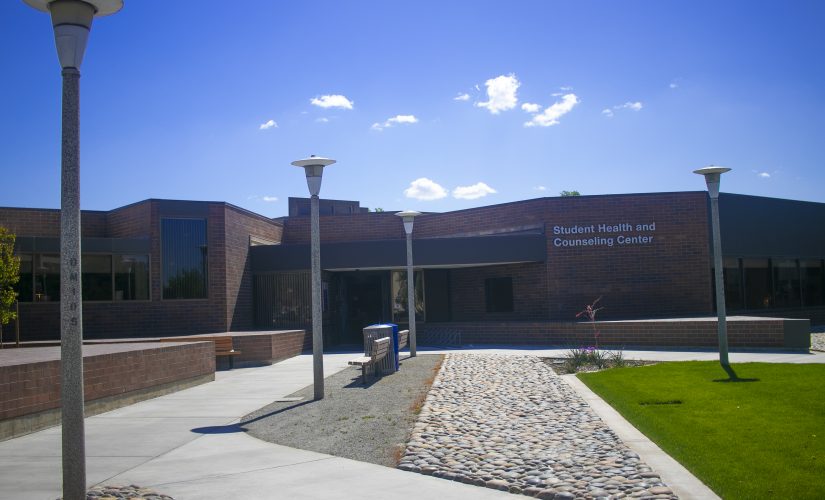Fresno State unveiled the AlegrÃa Mental Health Task Force to better the student body’s mental health and encouraged students to utilize the campus’s mental health services.
On March 1, Interim President Saúl Jiménez-Sandoval announced the 21 faculty and student members of the new task force in a virtual statement.
One of the missions the task force wants to accomplish is to decrease the stigma surrounding mental health.
“An important factor, as well, is that we want to make sure students understand that reaching out for help, becoming more informed, and seeking professional services from our mental health professionals is a sign of strength. It’s a concrete step taken to resolve issues that might otherwise affect an individual in a negative way,” said Fresno State public information officer Lisa Boyles Bell.
Jiménez-Sandoval named the task force alegrÃa because it means “joy” in Spanish, while in music, the Italian word “allegro” means a rhythm that is cheerful and lively.
“Together, we can forge a renewed sense of community and a resolve to create joy together,” Jiménez-Sandoval said.
As the COVID-19 pandemic continues to spread across the country, the multiple lockdowns and safety procedures, such as social distancing, have left many people feeling isolated and lonely.
“The pandemic has been challenging in so many ways, and it has highlighted the importance of our social lives,” Boyles Bell said.“Since we’ve sheltered in place and are not socializing like we used to, this lack of socialization has caused mental strains in our campus community.”
Changes to Health Center
The Student Health and Counseling Center has offered a number of counseling and Wellness Services to help students handle the mental stress due to the pandemic.
Part of the health center’s success in helping students with their mental health is the increase in this years’ health fee.
This semester the health service fee increased by $26 dollars ($52 a year), bringing the total health fee price from $113 to $139 per semester and $226 to $278 a year.
Malia Sherman, director of counseling and psychological services, said that the health center has been fortunate enough to hire two more counselors adding to eleven counselors instead of nine. And an additional case manager to help them expand their services to more students.
Many students who are currently talking to a campus counselor have seen positive results.
“I see a therapist at the center in order to help me cope with my anxiety and depression,” said fifth-year student Carly Regehr said. “She has been crucial in helping me understand my triggers, coping with them and exploring their connection to myself and also in my life.”
Other students have similar experiences after getting a counselor from the health center.
“The only way I can describe my experience with the health center is life-changing,” said Zeyda Romero, a fourth-year student and peer ambassador of the Wellness and Student Health Advisory Committee. “I don’t mean to sound cliche but after asking for help my grades improved, my appetite increased and my body felt like my own.”
The Wellness Services encourages students to be healthier versions of themselves while offering different segments that allow students to focus on their mental health.
“One of my favorite programs that the Wellness team after the virtual transition is Wake Up With Wellness,” Romero said. “This program focuses on fostering conversations about various wellness topics, which also gives students a space to learn how to integrate healthier habits into their routine.”
Other resources available
Other programs from the Wellness Services include PAWdcast and 360 Wellness. PAWdcast is a podcast where peer ambassadors of wellness members engage campus experts in conversations to support the development of healthy habits during changing times.
The 360 Wellness Challenge is a points-based system to support student’s mental health management. For instance, students can earn points by attending a virtual activity class or connecting with a Peer Ambassador of Wellness.
“If you can’t make Wake Up With Wellness at 10 a.m. on Wednesdays, you can always listen to the PAWdcast whenever you have time,” Romero said. “I’ve personally gained a lot from even the 360 Wellness Challenge, where you get points and win prizes for just taking care of yourself. It’s helped me carve out time in my schedule for self-care.”
However, while there are a lot of services the health center offers to aid students, the stigma around mental health still persists.
“I feel like sometimes people are embarrassed or feel ashamed to admit they need help because that’s how it was for me,” fourth-year student Jocelyn Hernandez said. “But sometimes you have to put that pride aside and understand what’s best for you.”
Correction: March 18, 2021
An earlier version of this article wrote the incorrect name for Fresno State’s public information officer. She is Lisa Boyles Bell, not Lisa Boyles.





